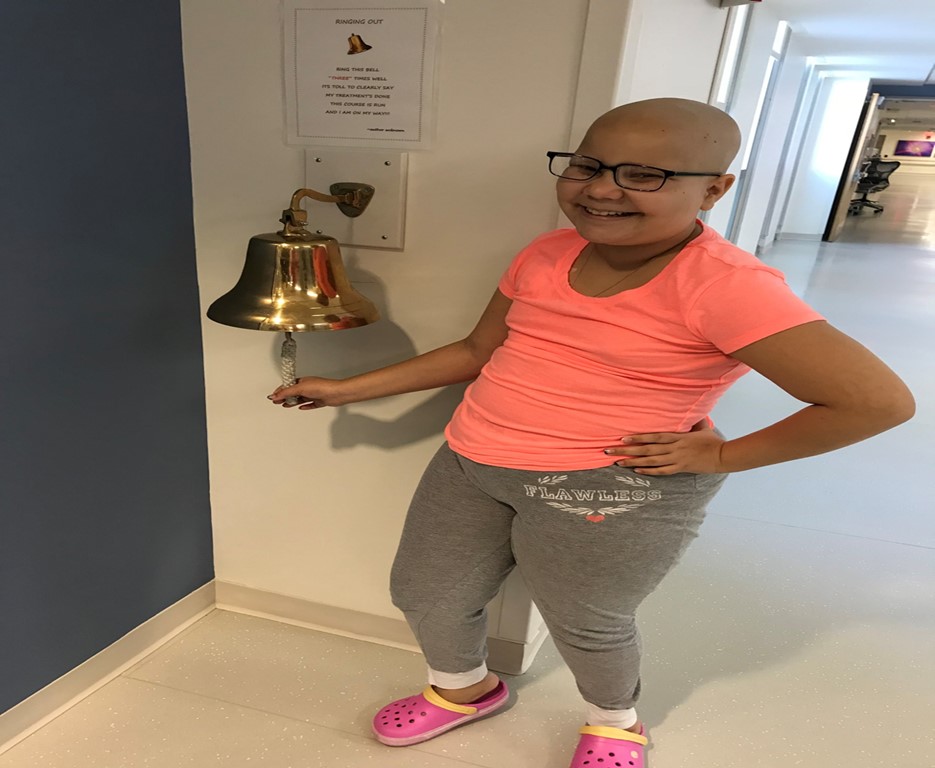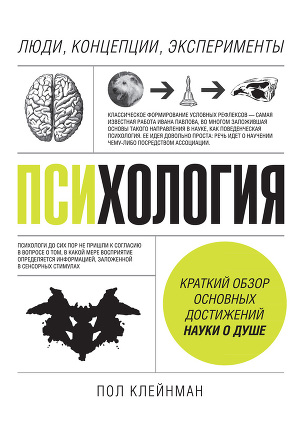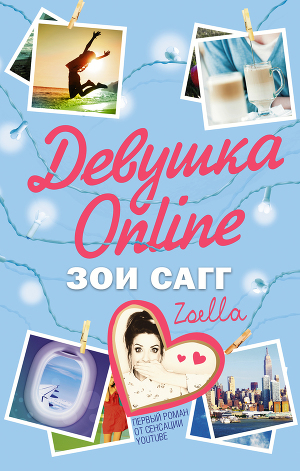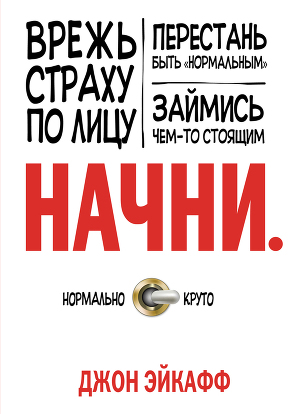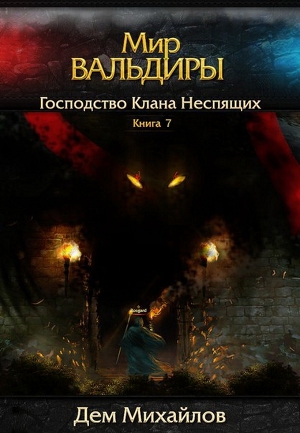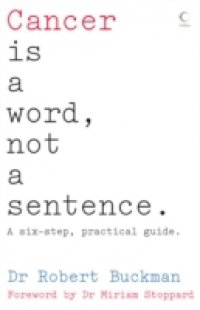- Книги
- Спорт / фитнес
- Miriam Stoppard
📚 Cancer is a Word, Not a Sentence читать книгу
Читайте только на ЛитРес!
Как читать книгу после покупки
- Чтение только в Литрес «Читай!»
По вашей ссылке друзья получат скидку 10% на эту книгу, а вы будете получать 10% от стоимости их покупок на свой счет ЛитРес. Подробнее
Стоимость книги: 147,21 ₽
Ваш доход с одной покупки друга: 14,72 ₽
Чтобы посоветовать книгу друзьям, необходимо войти или зарегистрироваться
- Объем: 280 стр. 1 иллюстрация
- Жанр: здоровье, медицина, онкология, спорт / фитнесРедактировать
Эта и ещё 2 книги за 399 ₽
По абонементу вы каждый месяц можете взять из каталога одну книгу до 700 ₽ и две книги из специальной подборки. Узнать больше
Оплачивая абонемент, я принимаю условия оплаты и её автоматического продления, указанные в оферте
Описание книги
A six-step, practical guide that helps you through the first few weeks following diagnosis.Cancer is a Word, Not a Sentence is a straightforward guide to life after diagnosis. It explains what your diagnosis actually means, what the tests are about, what the future holds, how to judge the treatment options open to you, how to cope with the side effects, and the inevitable ups and downs you experience following treatment.Dr Buckman focuses on the day-to-day: how to talk to your partner, children and friends, and how to communicate with your medical team. There’s even a section addressed to those close to you who ‘just don’t know what to say.’ His informed, no-nonsense approach offers reliable and essential facts and advice for everyone dealing with a diagnosis of cancer.
Подробная информация
- Возрастное ограничение:
- 0+
- Дата выхода на ЛитРес:
- 30 июня 2019
- Объем:
- 280 стр. 1 иллюстрация
- ISBN:
- 9780007355365
- Правообладатель:
- HarperCollins
- Оглавление
«Cancer is a Word, Not a Sentence» — читать онлайн бесплатно фрагмент книги. Оставляйте комментарии и отзывы, голосуйте за понравившиеся.
Оставьте отзыв
Поделиться отзывом на книгу
Miriam Stoppard, Dr Buckman Robert, ещё 0 авторов
Cancer is a Word, Not a SentenceТекст
A trusted and essential companion for everyone dealing with a diagnosis of cancer.
«If you’re reading this book, you’re probably reeling… This book is going to do one specific thing for you: it’s going to help you get your balance back.»
-from the introduction
Cancer is a Word, Not a Sentence is a practical guide written for people who have just been diagnosed with cancer. It aims to help them — and their loved ones — make sense of what happens next and to plan a course of action. Dr. Robert Buckman describes everything that comes after the diagnosis, including tests, the stages of the disease, treatment options and follow-up.
Having treated patients and interacted with their families for years, Dr. Buckman presents a six-step plan that provides information needed to make important choices in seeking the best treatment:
- Communicating with the medical team
- Treatment options and their pros and cons
- The right questions to ask and where to get information
- The decisions the patient has to make
- The possible outcomes.
Dr. Buckman also focuses on daily life: how to talk to your spouse or children, how to break the news to friends, and how to obtain the information you need. There’s also a section addressed to family and friends who «just don’t know what to say.»
In simple and straightforward language, this practical book provides a guide for use in the real world.
- Publication date
-
2007
- Topics
- Cancer — Popular works, Cancer — Diagnosis — Popular works, Cancer — Treatment — Popular works, Cancer, Soins médicaux, Malades, Santé, Aspects psychologiques, Relations humaines, Qualité de la vie, Cancer — Diagnosis, Cancer — Treatment, Neoplasms
- Publisher
- London : Collins
- Collection
- inlibrary; printdisabled; internetarchivebooks
- Digitizing sponsor
- Kahle/Austin Foundation
- Contributor
- Internet Archive
- Language
- English
vii, 246 pages ; 24 cm
A six-step, practical guide that helps you through the first few weeks following diagnosis. Cancer is a Word, Not a Sentence is a straightforward guide to life after diagnosis
Includes bibliographical references (page 240) and index
comment
Reviews
There are no reviews yet. Be the first one to
write a review.
9
Previews
DOWNLOAD OPTIONS
No suitable files to display here.
14 day loan required to access PDF files.
Uploaded by
station48.cebu
on November 30, 2020
Helia Baez is a 16 year old junior at Miami Senior High. At the age of 13, while in 8th grade, she was diagnosed with a tumor on the pituitary gland. She received both chemotherapy and radiation for eight months. On May 3rd, 2018, Helia finished treatment and is currently in remission. She can proudly say that she is a cancer survivor. With this literacy narrative she wrote for her dual enrollment ENC 1101 class, she hopes to show readers that cancer patients are warriors, not victims.
On the morning of October 7th, 2017, I sat on a plain white hospital bed in a pale cold room at the intensive care unit. My parents and I talked and laughed trying to make the best of the situation, unaware that in a matter of minutes my life would be turned upside down. A neurosurgeon with a team of other specialists walked into our room; at that moment, I knew something was wrong but had no idea the extent of the problem. The neurosurgeon sat in front of me and said, “Your brain tumor is inoperable and instead you’ll be receiving treatment.” She talked as if I knew what was happening, but I had no idea.
“So, I have cancer?” I stutteringly asked the doctors.
They looked at me realizing that I’d just found out and couldn’t figure out a way to tell my 13-year-old self that indeed she had cancer. The look on their faces was all the response I needed. It turns out my parents already knew; they just hadn’t told me yet. At first, I felt anger towards my parents for not telling me, but I also understood why they hadn’t. I knew that this was no moment to be angry at one another because we now needed each other more than ever.
My body became paralyzed, I quickly grew pale, and my eyes widened. My mind began to race at a thousand miles per hour. I could not believe what I had just heard. The moment just kept replaying in my head and it was all I could think about. “Oh my god, I’m going to die,” was my immediate thought. “This can’t be true, I must be dreaming,” I kept telling myself.
The people around me kept talking but I couldn’t hear them anymore; it was as if I was in a trance. I’d never been so scared in my life. I looked at my parents as they rushed to console me, but I don’t think anything could at that moment; all I could do was replay that phrase in my head. I was in a state of absolute disbelief. I thought I was going to die and saw all my plans for the future suddenly fade away. Even though I was overwhelmed with emotions and thoughts, I did not cry I knew it wasn’t going to fix anything. After the doctors left, my parents and I talked about what had just happened and they apologized for not telling me sooner. We ended the conversation with a hug; I don’t think I’d ever hugged anyone for that long or that hard. Later that day, we were moved to our new room on 6T, the hospital’s floor for oncology and hematology patients, where we had a visit from the child life specialist, Eli. She was there to help me understand my diagnosis and what was to come. “Think of it this way, in your brain there are cells. Some cells aren’t doing their job, those cells make up your tumor,” she explained. “When this happens, we need to do something about those lazy cells, In your case you’ll be taking chemotherapy.”
“Does chemo have any side effects?” I asked.
“Chemotherapy gets rid of those lazy cells, but unfortunately sometimes good cells get damaged in the process. Chemo can also have some side effects on the rest of your body such as nausea, feeling tired, lowered immune system, and in some patient hair loss,” she replied.
The following days were filled with MRIs, CT Scans, and any other medical exam known to man. Once the doctors had everything they needed, I was ready to begin chemotherapy. To receive chemo, I had to get a port-a-cath implanted in my chest, a small medical device that is placed under the skin of the chest which uses a catheter to connect to the veins; its purpose is to reduce the number of injections. My port was implanted on October 10th and the day after I began chemotherapy. The first chemotherapy was not that bad; I felt only a few side effects and hadn’t yet started losing my hair.
On October 21st we were finally sent home. I’d never been so happy to see my house. We were to return to the hospital on November 1st for my next chemo. During this period, I began to lose hair. One day as my mom detangled my hair, we realized it was falling out much more than usual, so much so that I could pull out globs of it. Even with everything that had happened before, this was the moment where it felt official: I indeed had cancer. That morning all I could do was stare at the hair that kept falling out; I felt powerless and in despair. I decided that I didn’t want to spend the next month watching my hair fall out; it would hurt too much, so instead, I decided to shave it off. That same day, my mom booked an appointment for the hair salon, and we went to shave our hair. My mom said, “As long as you’re bald, I’ll stay bald. We’re in this together.”
That is the sweetest thing anyone has done for me until this day. I had decided not to tell my dad about it and let him find out on his own when he got home. I still remember his reaction, my father turned pale and a little red, his eyes watered, and he gave me a big hug; he too decided to shave his head for me.
For the next eight months, I would be in treatment; unfortunately, the following sessions of chemotherapy weren’t as easy as the first. Slowly, the side effects got worse and worse, I was vomiting seven and eight times a day, even when taking nausea medication. The smell of any food, especially hospital food would make me throw up on the spot. I also became constipated, got mouth sores, and more body aches than I had ever had. On top of that, I was getting sympathy chats, pity looks, insensitive comments, and unsolicited medical advice. I can’t explain how irritating it is for a cancer patient to be told that they should try a “cleanse that cures cancer” or being told, “I know how you feel, I once got a really bad cold.”
I can’t complain though, it wasn’t all bad, or at least my family and I tried to make the best of it. My favorite moments while in the hospital were going out on walks around 6T with my mom and playing air hockey on the floor’s the playroom with my friends who came to visit. This experience taught me to notice the little things and to celebrate small victories like not vomiting for a full day or the fact that I wouldn’t need a transfusion and, to this day that lesson has stuck with me. On May 3rd, 2018, after 30 sessions of chemotherapy and 24 sessions of radiation I wrang the gold bell at the Miami Cancer Institute, a tradition that takes place at the end of a patient’s treatment; this was one of the happiest moments of my life.
It’s funny to think that one simple word, “cancer” can drastically change your life in a matter of seconds. After this word, I spent 8 excruciating months in treatment and will spend a lifetime taking pills, visiting oncologists, getting scans, and with an aching memory of those eight months. That word taught me some very valuable lessons such as not taking things for granted and to appreciate the little joys of life. Lastly, this word changed my view on cancer patients, and after reading this I hope you learn it too. Cancer patients aren’t victims to be pitied rather warriors who are fighting to survive. To any cancer patient reading this, I tell you, there is hope because as I have emphasized many times cancer is a word, not a sentence.
J Unexplored Med Data 2020;5:3. 10.20517/2572-8180.2020.02 © The Author(s) 2020.
Open Access Editorial
Views: 1235 | Downloads: 383 | Cited: 
Department of Surgery, Division of Surgical Oncology, VCU School of Medicine, Richmond, VA 23298, USA.
Correspondence Address: Kandace McGuire, Division of Surgical Oncology, VCU School of Medicine, Richmond, VA 23298, USA. E-mail: kandace.mcguire@vcuhealth.org
Views:1235 | Downloads:383 | Cited:
Received: 2 Feb 2020 | Accepted: 11 Feb 2020 | Published: 31 Mar 2020
Science Editor: Tarek Shalaby | Copy Editor: Jing-Wen Zhang | Production Editor: Tian Zhang
When a woman is diagnosed with breast cancer, so many questions form in her head. “Will I live?” “Can I save my breast?” “How can I live my life with cancer or after cancer?” When considering these questions, clinicians realize that curing patients with breast cancer is not the same as caring for patients with breast cancer. This Special Issue of the Journal of Unexplored Medical Data addresses not only the medical aspects of breast cancer care but also the effect this disease (and what we do to treat it) has on patients’ lives.
Dr. Kass and her colleagues[1] discuss in their article, “Reasons symptomatic breast cancer patients delay seeking medical care”, that women diagnosed with breast cancer often delay seeking care due to issues surrounding family/children or other matters they consider more pressing than cancer care: work responsibilities or concern about keeping their jobs, transportation costs and difficulty, fear of being judged by healthcare workers, and fear of not being able to afford treatment. Recognizing the barriers women face with seeking cancer care when they are curable is the first step in helping us care for a vulnerable population. If we never see these patients, we cannot help them through their cancer journey.
Appropriate loco-regional therapy is a vital part of breast cancer care and this is addressed in two articles, “Narcotics and breast surgery: a review of current literature” by Dr. Abbott’s group[2] and “Ductal carcinoma in situ in the elderly: what is the ideal treatment plan?” presented by Dr. Plichta and her colleagues[3]. Dr. Abbott’s group discusses that minimization of opioid use in the perioperative setting for breast cancer surgery is both possible and beneficial. With the advent of ERAS (enhanced recovery after surgery) protocols and appropriate managing of expectations, we can reduce narcotic use and subsequent addiction. Evaluating trends in management of DCIS in women over the age of 70, using the National Cancer Database, DeChant et al.[3] determined that age alone is not sufficient to predict adequacy or success of therapy. Functional assessment of the elderly, their level of fitness and competing comorbidities, is a concept studied by a number of groups and this article supports the conclusion that this form of assessment should be used to tailor therapy rather than age alone.
Systemic therapy can affect not only the survival of patients with breast cancer but also their quality of life. Gastrointestinal side effects of cytotoxic chemotherapy are one of the most common complaints among those undergoing treatment. Drs. McCourt and Wallen and colleagues[4] discuss in this Special Issue a novel predictive assay proven to be helpful in identifying individual breast cancer patients at high risk of developing moderate or severe delayed nausea after treatment with taxane-based therapies such as docetaxel/cyclophosphamide and docetaxel/carboplatin/trastuzumab/pertuzumab. Assays such as this can help individualize anti-emetic regimens so as to maximize their therapeutic potential while minimizing side effects. One of the mainstays of adjuvant therapy for hormone receptor positive breast cancer is endocrine therapy. However, concerns regarding side effects of these medications continues to limit adherence to the regimen. Patients with metabolic syndrome (a syndrome which increases in incidence yearly) could potentially be more susceptible to untoward side effects. Drs. Lytkin and Briukhanova and their research group[5] demonstrated in a rat model that the use of exemestane can affect metabolism in at risk subjects. While this is early, pre-clinical work, it opens an avenue for further research into how best to use vital adjuvant therapy while managing side effects and improving adherence.
Finally, we must look to survivorship. While we may cure the cancer with surgery, radiation, and systemic therapy, we often create life-long health issues which can negatively affect quality of life. Dr. Ayre and Parker[6] discuss in their article the impact of lymphedema resulting from breast cancer therapy. They note that one in six women treated for breast cancer will develop lymphedema. They emphasize the need for patient education, early detection through physical exam or other confirmatory testing, effective conservative management, and the availability of operative management should conservative measures fail.
The authors in this Special Issue present a strong case for support of the breast cancer patient during her cancer journey that can not only improve cancer outcomes but also enhance patient/survivor quality of life and perception of wellness. With their work, these authors prove that caring for the patient with cancer has importance beyond the curing of the patient with cancer. Cancer is not a (life) sentence, and supporting a patient through her journey to the other side of cancer is an essential task we must all undertake.
Declarations
Authors’ contributions
Researched and wrote this article: McGuire K
Availability of data and materials
Not applicable.
Financial support and sponsorship
None.
Conflicts of interest
All authors declared that there are no conflicts of interest.
Ethical approval and consent to participate
Not applicable.
Consent for publication
Not applicable.
Copyright
© The Author(s) 2020.
References
-
1. Heath J, Paulishak M, Kasales C, Schubart J, Kass R. Reasons symptomatic breast cancer patients delay seeking medical care. J Unexplored Med Data 2019;4:3.
DOI
-
2. Hite M, Klauber-DeMore N, Abbott AM. Narcotics and breast surgery: a review of current literature. J Unexplored Med Data 2019;4:9.
DOI
-
3. DeChant CA, Thomas SM, Rosenberger LH, Fayanju OM, Greenup RA, et al. Ductal carcinoma in situ in the elderly: what is the ideal treatment plan? J Unexplored Med Data 2019;4:2.
DOI
-
4. McCourt DD, Parikh K, Brady AL, Wang Y, Kennedy J, et al. The quest for reliable prediction of chemotherapy-induced delayed nausea among breast cancer patients. J Unexplored Med Data 2019;4:6.
DOI
-
5. Lytkin D, Zagayko A, Briukhanova T. Exemestane leads to hormone-associated ascites in female hamsters with experimental metabolic syndrome. J Unexplored Med Data 2019;4:8.
DOI
-
6. Ayre K, Parker C. Lymphedema after treatment of breast cancer: a comprehensive review. J Unexplored Med Data 2019;4:5.
DOI
Cite This Article
OAE Style
McGuire K. Cancer is a word, not a sentence.
J Unexplored Med Data 2020;5:3. http://dx.doi.org/10.20517/2572-8180.2020.02
AMA Style
McGuire K. Cancer is a word, not a sentence.
Journal of Unexplored Medical Data.
2020; 5:3. http://dx.doi.org/10.20517/2572-8180.2020.02
Chicago/Turabian Style
McGuire, Kandace. 2020. «Cancer is a word, not a sentence»
Journal of Unexplored Medical Data.
5: 3. http://dx.doi.org/10.20517/2572-8180.2020.02
ACS Style
McGuire, K. Cancer is a word, not a sentence.
J. Unexplored Med. Data.
2020, 5, 3. http://dx.doi.org/10.20517/2572-8180.2020.02
Views
1235 Downloads
383 Citations
0
0
This article is available free of charge.
Simply log in to access the full article, or register for free if you do not yet have a username and password.
Already registered?
One-time access price info
- For academic or personal research use, select ‘Academic and Personal’
- For corporate R&D use, select ‘Corporate R&D Professionals’
Article info
Publication history
Identification
DOI: https://doi.org/10.1016/S1470-2045(07)70312-1
Copyright
© 2007 Elsevier Ltd. All rights reserved.
ScienceDirect
Access this article on ScienceDirect
”The wound is the place where the Light enters you.” −Jalaluddin Rumi
Cancer runs in Linda’s family (not her real name) and she tested positive for the BRCA (BReast CAncer) 2 gene, indicating that she is at higher risk for cancer than the general population. Moreover, she has already had cancer twice. Understandably, she is troubled, and has written asking for general advice and answers to questions. After introductory remarks, I will answer some of her questions and follow that with some suggestions that may prove helpful.
The most important thing for you to do, Linda, is maintain a positive attitude. That is, you must train yourself to always focus on what’s good, not what’s bad. I will repeat this message later, offering an example or two for your reference. But first, let’s find out why a positive outlook is so important, not only for Linda, but for all of us.
Our body is bombarded daily with pollutants, harmful bacteria, viruses, and disease producing agents. Fortunately, however, we are protected by a miraculous arrangement called the immune system, which detects threats to our health and annihilates them. Yet, despite this protection, we still become ill. Why is that? The major cause of all disease is stress. Though it is the major cause, it is not a direct cause, but a secondary one. Here’s what I mean. Cancer cells that are circulating in a body will be destroyed by a healthy immune system. But stress weakens the immune system so that it can no longer offer protection. So, in my example of cancer, the direct cause of disease is cancer while the secondary cause is stress. What makes stress so horrible is that by weakening the immune system it makes us vulnerable to all illnesses. Can you now see why it is so important to remain positive? Positive, cheerful people have little or no stress, so they enjoy physical and mental health.
Cancer also runs in Larry’s family, making him fearful. Ironically, after learning how stress weakens the immune system, Larry is worrying more than ever. After all, his fear of getting cancer is very stressful, so his immune system is being compromised, increasing the likelihood of getting what he fears.
Earlier, Linda, I wrote that I would be stressing how important it is to train your mind to always see things in a positive light. I also wrote that I would be giving examples, the purpose of which is to illustrate how to apply positive thinking in everything you do. So, here is the first example. Larry is an example of negative thinking. Larry became more stressful after learning how stress weakens the immune system. So, let’s see how you could look at these facts differently. Here’s an example.
“Stress increases the likelihood of getting cancer? Wow! That’s great to know because that means the more I eliminate stress from my life, the more I decrease the chances of getting cancer. Knowing this empowers me because I can immediately think of things for me to do to reduce stress. Let’s see now, there are yoga classes, mindfulness meditation, long walks, workouts in the gym, recreation. Why there are dozens of things I can do. I don’t have to do all of them. I’ll just choose to do what works best for me. And while I’m at it, I’ll check the library, bookstore, and the Internet for stress reducing techniques.”
I will now move on to some of Linda’s comments or questions, following that with some suggestions.
Linda: “I am facing fear and I just can’t seem to think about my situation in a way that I can get a grip, so to speak.”
Chuck: We all experience fear at one time or another, and the most common type is fear of the unknown. The more you learn and understand about your situation the less fearful and stressful you will become. Although you already know a great deal about cancer, far more than the average person, I’m afraid it’s too narrowly focused. Most of what you have studied strikes fear in your heart and you find little reason to be hopeful, which indicates you need to study more. I will try to point you in the right direction and introduce you to the big picture. But that comes a little later in the article.
You don’t want to die. You want to live. But where is it that we live? It is in the present moment. When you allow yourself to be gripped by fear you are focusing on what might be instead of what is. When you leave the present moment, you are choosing a dream over reality, choosing a fantasy over life. Mindfulness meditation can be a big help in learning how to experience a life without fear. The Mindfulness in Plain English Collection is an excellent book on the subject. And here’s what Michael Neill has to say about the matter, “To be fully present with what is, is to be content, and to be content, is to be blessed by everything that happens in life.”
L: “I read your article: 3 Readers Ask about Death and Dying, and plan to start rereading it.”
C: You don’t need to reread the article as all you are thinking about is death. Consumed by it you are allowing the pleasures and joys of life to slip by unnoticed. It is time stop and think about life. Yes, life is short, or as Michael Althsuler said, “The bad news is…time flies. The good news is…you’re the pilot.” But don’t live in autopilot mode. Remain conscious. Remain present and allow life to tickle you with its many surprises. Be grateful for the opportunity to experience the mystery of life.
Teddy and May were having a conversation:
“Congratulations, Teddy, on winning that dream vacation to Bali at the company’s Christmas party.”
“How can I enjoy it, May? You know I have a terminal illness.”
“We all do, Teddy; it’s called life. None of us know when we will die. Terminal illness or not, I can die before you. I could die tomorrow. And this ice cream sundae that I’m eating could be my very last one. But does that make it any less delicious?”
The above conversation is another example of the right and wrong way to view life. And if it isn’t clear enough, listen to the words of Anne Frank, “I don’t think of all the misery but of the beauty that still remains.”
L: “How would you think about carrying a cancer gene? I feel like I’ve been handed a death sentence. I don’t feel empowered with the knowledge, I feel terrorized. I have PTSD, and these medical issues trigger it.
C: For clarity, let me answer your questions one at a time.
1. What would I think about carrying a cancer gene? I would want to learn as much as possible about LIVING with cancer, not about DYING of it. I would want to learn how others are successfully coping and all the available options. I would look for reasons for hope, not things to fear.
2. I feel like I’ve been handed a death sentence. I don’t feel empowered with the knowledge; I feel terrorized. Most people repress all thoughts of death, acting as if they would live forever. So what if their relationships are in shambles, dreams shattered, goals laid by the wayside? After all, they can always fix their problems ‘tomorrow.’ If, Linda, you use your awareness of death (awareness, not fear) to mend relationships, rebuild your dreams and achieve your goals, imagine how exhilarating life will be! Choose to allow your awareness of death empower and motivate you to lead a fulfilling life.
3. I have PTSD, and these medical issues trigger it. Is it true that you have PTSD and your medical issues trigger it? Yes it is true as long as you continue to say so and as long as you believe so. But here’s the point, watch what you say! You are programming your mind by what you say and believe. And you can choose what to say and believe. For example, instead of saying, “I have PTSD,” you can choose to say “I have the inner resources to change my attitude and beliefs. I can cheerfully cope with every obstacle and will do so from this moment on.” That’s a big change isn’t it? And that change is only one commitment away.
Whether you choose to say the first (PSTD) or second statement (“I can cope.”), both are equally true because we are what we say and believe we are. I will say more about beliefs in just a moment, but first your final comment.
L: “I am currently reading The Sedona Method and I like it.”
C: The Sedona Method is a very simple, but profound, technique to release fear and other negative emotions, freeing us to experience life in all its glory. But, Linda, stop reading about the method and start practicing it. If you were practicing it, you wouldn’t be writing to me. Reading about it is interesting, but practicing it is life transformative.
The Magical World of Beliefs
To be truly empowered, it is essential that we understand the nature of beliefs and utilize their potential. Beliefs and experiences feed off each other. Our experiences lead us to make conclusions and form beliefs. Once we accept a belief, we find it impossible to act in a manner incompatible with it. For instance, if we believe we cannot speak before large groups, it becomes impossible to do so. Impossible, that is, until we change our belief, which will then create a new experience. Thus, our experiences are the causes of our beliefs and our beliefs are the causes of our experiences.
But what do I do if I want to learn more and how do I change the beliefs that are holding me back? Here’s a book you may find helpful: Choose To Believe: A Practical Guide to Living Your Dreams.
Neurosculpting: A Whole-Brain Approach to Heal Trauma, Rewrite Limiting Beliefs, and Find Wholeness is another book that may prove valuable.
Living with Cancer: The Big Picture
Linda, your view of your situation is lopsided. You need to get a more balanced view and become aware of all of the possibilities. To help you do so, here are some books that can become your friends and offer you new coping tools and valuable information. With each title, I’ve included a book review done by an actual reader (taken from Amazon.com).
There‘s No Place Like Hope: A Guide to Beating Cancer in Mind-sized Bites by Vickie Girard
“I bought this book to give to my sister, who is dealing with her third diagnosis of Cancer. I read it first to make sure it would be something I felt would be helpful to her, and not just another book on dealing with Cancer. It was all I hoped for and more! Both my sister, and I, felt this book was a very realistic, and uplifting book. It was also a very practical approach to dealing with cancer, whether it is the first diagnosis, or a second or third. I would recommend this book to both Cancer patients, and their caregivers and friends.”
Cancer is a Word, Not a Sentence: A Practical Guide to Help You Through the First Few Weeks written by Dr. Robert Buckman MD
“Even as a word it is one of the most terrifying to hear if it is your diagnosis. This book gives people receiving the news (and their friends and family) a comprehensive map not only about types of cancer, treatments, anti-nauseates plus pertinent organizations and web sites, but equally important, chapters on: ‘How to Get Back on Track,’ ‘Do I always Have to Have a Positive Attitude?’ and ‘What Can I Do to Help Myself?’… Even if you don’t read this book here is one thing you have to know. As he says, it might be the most ignored and under-publicized medical statistic in the known world: ‘Of all the people diagnosed with one of the cancers this year just over half will survive it and will not be troubled by it for the rest of their life.’ In either case, this book is essential.” John F. Lehman (Amazon.com Book Reviewer)
The subtitle of this article was used as the title of two different books, including the one above. However, the expression apparently was first used by John Diamond, whose book appears below.
Facets of a Diamond: Reflections of a Healer by John Diamond
“Facets of a Diamond is an incredible book that looks honestly, intelligently and profoundly at the roles of healer and patient, and more importantly, at the underlying motivation of man. Diamond looks at every aspect of an illness or life problem: spiritual, societal, motivational, dietary, energetic, psychological, environmental, hereditary…”
Cancer: 50 Essential Things to Do by Greg Anderson
“I never wrote a review before, but this book has had a huge impact. I was diagnosed with stage 4 kidney renal cancer. After hearing “to get my affairs in order” and going through the nightmare of emotions and feeling, I found this book. I felt hope and chose to not give up and fight. I am applying what I have learned, and the rewards far exceed expectations. I am surprising my doctors, and doing well. This book is so uplifting and full of hope. If you apply the principles in this book, you can make a difference in your cancer outcome.” (Out of 35 Amazon.com readers, 27 gave this book a 5-star rating.)
Healing Cancer From Inside Out by Mike Anderson
“The information this book provides is nothing short of shocking. Two months ago I was diagnosed with colon cancer. As an unapologetic research nerd, I read everything I could get my hands on to learn more about what was wrong with me and how best to battle it. Mike Anderson’s book is far and away the most informative resource I’ve come across. Highly recommended!”
I’m glad to learn, Linda, that you participated in an online support group, but if at all possible, I would urge you to join a live support group in your area. You have a lot to cope with and it can be very stressful if you try handling it alone. More than therapists and doctors, you need the support, friendship, and ideas that can come from men and women in the same position as you.
Linda, please consider these wise words from a woman who has been living with cancer for more than 10 years: “People ask me if I live each day like it’s my last, and I don’t; I live each day like it’s my first, and I can’t wait for the next one.” And please visit her (Kriss Carr) website.
Lastly, I’d like to offer some additional inspiration in the form of quotations that are not just for Linda, but for all of our readers:
You either get bitter or you get better. It’s that simple. You either take what has been dealt to you and allow it to make you a better person, or you allow it to tear you down. The choice does not belong to fate, it belongs to you. Josh Shipp
Sometimes you will be in control of your illness and other times you’ll sink into despair, and that’s OK! Freak out, forgive yourself, and try again tomorrow. Kelly Hemingway
I often say now I don’t have any choice whether I have Parkinson’s, but surrounding that non-choice is a million other choices that I can make. Michael J. Fox
If you can’t fly then run, if you can’t run then walk, if you can’t walk then crawl, but whatever you do you have to keep moving forward. Martin Luther King Jr.
Maybe it’s not always about trying to fix something that is broken. Maybe it’s about starting over and creating something better. Unknown
The measure of who we are is what we do with what we have. Vince Lombardi
Believe in yourself and all that you are. Know that there is something inside of you that is greater than any obstacle. Christian D. Larson
Live to inspire, and one day people will say, because of you, I didn’t give up. Unknown
References
BOOKS
Living with Cancer: A Step-by-Step Guide for Coping Medically and Emotionally with a Serious Diagnosis by Vicki A. Jackson and David P. Ryan
Anticancer Living: Transform Your Life and Health with the Mix of Six By Lorenzo Cohen PhD and Alison Jefferies MEd
Anticancer: A New Way of Life by David Servan-Schreiber MD PhD
The Human Side of Cancer: Living with Hope, Coping with Uncertainty by Jimmie Holland
Radical Remission: Surviving Cancer Against All Odds by Kelly A. Turner PhD
The Cancer Whisperer: Finding Courage, Direction, and the Unlikely Gifts of Cancer By Sophie Sabbage
VIDEOS
Living With Cancer – Ally’s Story
Colon Cancer Symptoms, Treatment, Diagnosis and Stages
Living With Cancer – Toni’s Story
- 33
- 0
- 0
Скачать книгу в формате:
- fb2
- rtf
- txt
- epub
Популярные книги
-
- Читаю
- В архив
- 50684
- 19
- 1
Аннотация:
Автор этой книги отбросил скучные детали и статистику и предлагает читателю занимательные уроки …
Блок — 10 стр.
-
- Читаю
- В архив
- 54939
- 26
- 7
Аннотация:
Зои Сагг Девушка Online Я посвящаю эту книгу всем, кто сделал ее появление реальностью. Всем, к…
Блок — 11 стр.
-
- Читаю
- В архив
- 77937
- 11
- 1
Аннотация:
Если для нас «любить» означает «страдать», значит, мы любим слишком сильно. В этой книге рассматрив…
Блок — 13 стр.
-
- Читаю
- В архив
- 56002
- 16
- 1
Аннотация:
Джон Эйкафф Начни. Врежь страху по лицу, перестань быть «нормальным» и займись чем-то стоящим И…
Блок — 9 стр.
-
- Читаю
- В архив
- 52488
- 14
- 13
Аннотация:
Мягкий порыв ветра принес с собой запах морской соли и йода… уже пора в путь! Но сколько еще осталос…
Блок — 16 стр.
Уважаемые читатели, искренне надеемся, что книга «Cancer is a Word, Not a Sentence» Buckman Dr Robert (EN) окажется не похожей ни на одну из уже прочитанных Вами в данном жанре. Загадка лежит на поверхности, а вот ключ к отгадке едва уловим, постоянно ускользает с появлением все новых и новых деталей. С помощью намеков, малозначимых деталей постепенно вырастает главное целое, убеждая читателя в реальности прочитанного. Удачно выбранное время событий помогло автору углубиться в проблематику и поднять ряд жизненно важных вопросов над которыми стоит задуматься. Одну из важнейших ролей в описании окружающего мира играет цвет, он ощутимо изменяется во время смены сюжетов. Гармоничное взаимодоплонение конфликтных эпизодов с внешней окружающей реальностью, лишний раз подтверждают талант и мастерство литературного гения. В тексте находим много комизмов случающихся с персонажами, но эти насмешки веселые и безобидные, близки к умилению, а не злорадству. Обильное количество метафор, которые повсеместно использованы в тексте, сделали сюжет живым и сочным. Чувствуется определенная особенность, попытка выйти за рамки основной идеи и внести ту неповторимость, благодаря которой появляется желание вернуться к прочитанному. Произведение, благодаря мастерскому перу автора, наполнено тонкими и живыми психологическими портретами. Глубоко цепляет непредвиденная, сложнопрогнозируемая последняя сцена и последующая проблематика, оставляя место для самостоятельного домысливания будущего. «Cancer is a Word, Not a Sentence» Buckman Dr Robert (EN) читать бесплатно онлайн можно неограниченное количество раз, здесь есть и философия, и история, и психология, и трагедия, и юмор…
Новинки

- 3
- 0
- 0
Аннотация:
Энциклопедия «Животные Южной Америки» откроет тебе удивительный и многоликий мир животных четверто…
Полный текст — 0 стр.
Энциклопедия «Животные Южной Америки» откроет тебе удивительный и многоликий мир животных четверто…

- 5
- 0
- 0
Аннотация:
Приключения Александра в безумной «песочнице» продолжаются. По надуманной причине против него опол…
Полный текст — 0 стр.
Приключения Александра в безумной «песочнице» продолжаются. По надуманной причине против него опол…
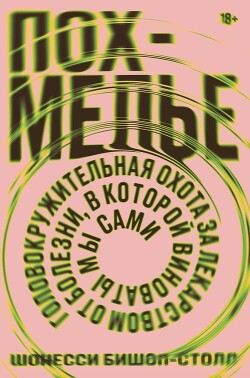
- 10
- 0
- 0
Аннотация:
Кто сталкивался с похмельем, знает: редко человек чувствует себя столь одиноко, скверно и ничтожно…
Полный текст — 86 стр.
Кто сталкивался с похмельем, знает: редко человек чувствует себя столь одиноко, скверно и ничтожно…

- 20
- 1
- 0
Аннотация:
Вот они, легендарные края, о которых рассказывают в сказках. Земли, где скрывается империя Пьениан…
Полный текст — 81 стр.
Вот они, легендарные края, о которых рассказывают в сказках. Земли, где скрывается империя Пьениан…

- 42
- 0
- 0
Аннотация:
Джотэм — король Дома Защиты. Он — самый молодой король в истории Кириниана, занявший эту должность…
Полный текст — 116 стр.
Джотэм — король Дома Защиты. Он — самый молодой король в истории Кириниана, занявший эту должность…

- 16
- 0
- 0
Аннотация:
В первый раз когда она увидела своего нового соседа, то мысленно переезжала. Во второй — ненавиде…
Фрагмент — 7 стр.
В первый раз когда она увидела своего нового соседа, то мысленно переезжала. Во второй — ненавиде…
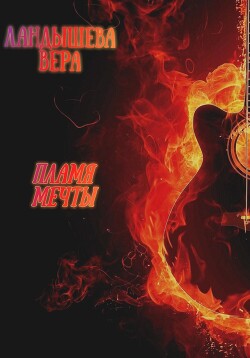
- 7
- 0
- 0
Аннотация:
Как заставить себя жить, когда твой привычный мир рухнул? Можно ли построить что-то на обломках п…
Фрагмент — 3 стр.
Как заставить себя жить, когда твой привычный мир рухнул? Можно ли построить что-то на обломках п…


